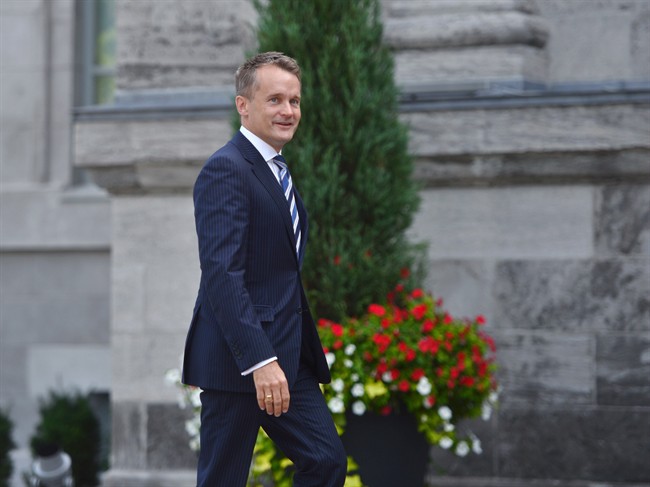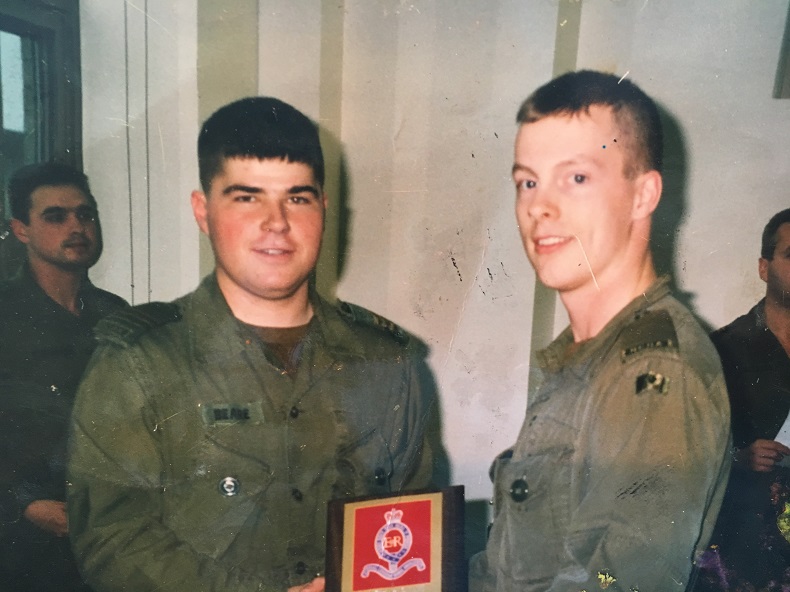A group of Canadian veterans and their supporters is expected to show up on Parliament Hill on Thursday to protest what they call unfair treatment at the hands of the federal government.

The event, organized by Canadian Forces veteran Colin Saunders, comes after a week of angry exchanges in the House of Commons between Conservative MPs, Prime Minister Justin Trudeau and Veterans Affairs Minister Seamus O’Regan.
WATCH: Debate over veteran pensions becomes heated during Question Period

“Veterans Affairs is acting more like an insurance company and less like an advocate that’s there to help our veterans,” said Saunders on Wednesday in Ottawa.
“There’s a lot of chaos growing in the veteran community … quite frankly they’re just tired of being left out in the cold.”
READ MORE: Are the Liberals really turning their back on veterans?
The Liberals recently announced a revamp of the pension system for Canada’s injured men and women in uniform. The long-awaited move was greeted with disappointment and anger in some quarters for failing to live up to what was promised.
The government has argued that its approach is the right one for all Canadians veterans and their families.
A change made in the pension system in 2006 means that injured soldiers receive two different levels of compensation (lifetime pensions versus lump-sum payments) depending on when they were hurt.
Saunders himself suffered a traumatic brain injury in Bosnia before 2006. He says it took more than three years before a cognitive test revealed the extent of the injury, and he’s had to overcome “roadblock after roadblock” to secure compensation.
Since 2006, he’s faced other medical issues and was released from service in February 2017.
“The compensation granted is not equal for (the injuries before and after 2006),” Saunders said. “I mean, they’re different injuries, but … they’re not even close to being what the government’s promised.”
READ MORE: Trudeau should apologize for ‘insulting’ comments on veterans, Conservatives say
A veteran in Edmonton, Brock Blaszczyk, recently confronted Trudeau directly on the issue of pensions for injured servicemen and women, leading the prime minister to explain that although Ottawa is moving to spread financial assistance out over veterans’ lifetimes and offering new programs, those who have taken the government to court “are asking for more than we are able to give right now.”
WATCH: Former soldier talks about why he challenged Trudeau on veterans policy

Saunders called that response “very frustrating and upsetting.”
“Because, quite frankly, we’re not buying it,” he told Global News.
“You can look on television every day and (Trudeau’s) giving millions in aid to other countries, and yet our own veterans are struggling to get the help they need.”
Veterans Affairs Minister O’Regan defended his government’s plan repeatedly in the House of Commons last week, citing examples of how it would apply in individual situations.
“A corporal who served five years in the regular forces and suffered 100 per cent disability is entitled to nearly $6,000 a month in benefits, an additional $1,000 a month for caregiver support, nearly $72,000 through the critical injury benefit, and additional financial assistance to modify her vehicle and her home to meet her needs,” O’Regan said.
“Our pension-for-life option … is very real and it is the least we owe our veterans.”
READ MORE: Veterans affairs minister urges patience on pensions for injured ex-soldiers
Saunders said he has spoken repeatedly with O’Regan’s office, and a staffer took notes and promised to pass along his message to the minister. It’s unclear if it was ever received.
“In fact, (the staffer) hung up on me afterwards,” he said.
“It’s funny that the Canadian Forces taught me to lead soldiers into combat, and it’s ironic that now, that combat is against our own government.”
– With files from Bryan Mullan
- A ‘zombie’ virus is raging among raccoons. What to know
- Renters so far more ‘vulnerable’ than homeowners amid higher interest rates. Why?
- Toronto Maple Leafs fire head coach Sheldon Keefe after latest playoff disappointment
- Could notwithstanding clause be used on abortion? Poilievre’s office says ‘never’





Comments